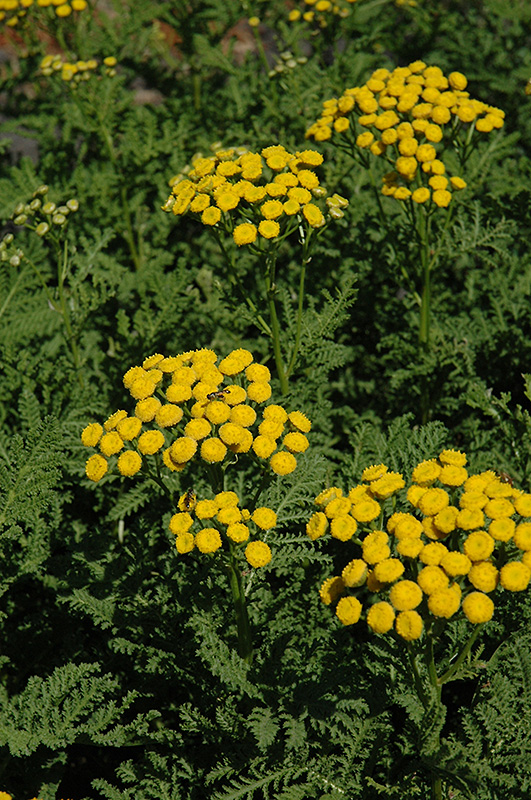Height: 24 inches
Spacing: 24 inches
Sunlight:
![]()
![]()
Hardiness Zone: 4
Ornamental Features
Crispleaf Tansy has masses of beautiful yellow button flowers at the ends of the stems from early to late summer, which are most effective when planted in groupings. The flowers are excellent for cutting. Its attractive fragrant ferny pinnately compound leaves remain grayish green in colour throughout the season.
Landscape Attributes
Crispleaf Tansy is an herbaceous perennial with a mounded form. It brings an extremely fine and delicate texture to the garden composition and should be used to full effect.
This is a high maintenance plant that will require regular care and upkeep, and can be pruned at anytime. Deer don't particularly care for this plant and will usually leave it alone in favor of tastier treats. Gardeners should be aware of the following characteristic(s) that may warrant special consideration;
- Spreading
- Self-Seeding
Crispleaf Tansy is recommended for the following landscape applications;
- Mass Planting
- General Garden Use
- Naturalizing And Woodland Gardens
Planting & Growing
Crispleaf Tansy will grow to be about 24 inches tall at maturity, with a spread of 30 inches. When grown in masses or used as a bedding plant, individual plants should be spaced approximately 24 inches apart. It grows at a fast rate, and under ideal conditions can be expected to live for approximately 10 years. As an herbaceous perennial, this plant will usually die back to the crown each winter, and will regrow from the base each spring. Be careful not to disturb the crown in late winter when it may not be readily seen!
This plant does best in full sun to partial shade. It prefers to grow in average to moist conditions, and shouldn't be allowed to dry out. It is not particular as to soil type or pH. It is highly tolerant of urban pollution and will even thrive in inner city environments. This is a selected variety of a species not originally from North America. It can be propagated by division; however, as a cultivated variety, be aware that it may be subject to certain restrictions or prohibitions on propagation.

